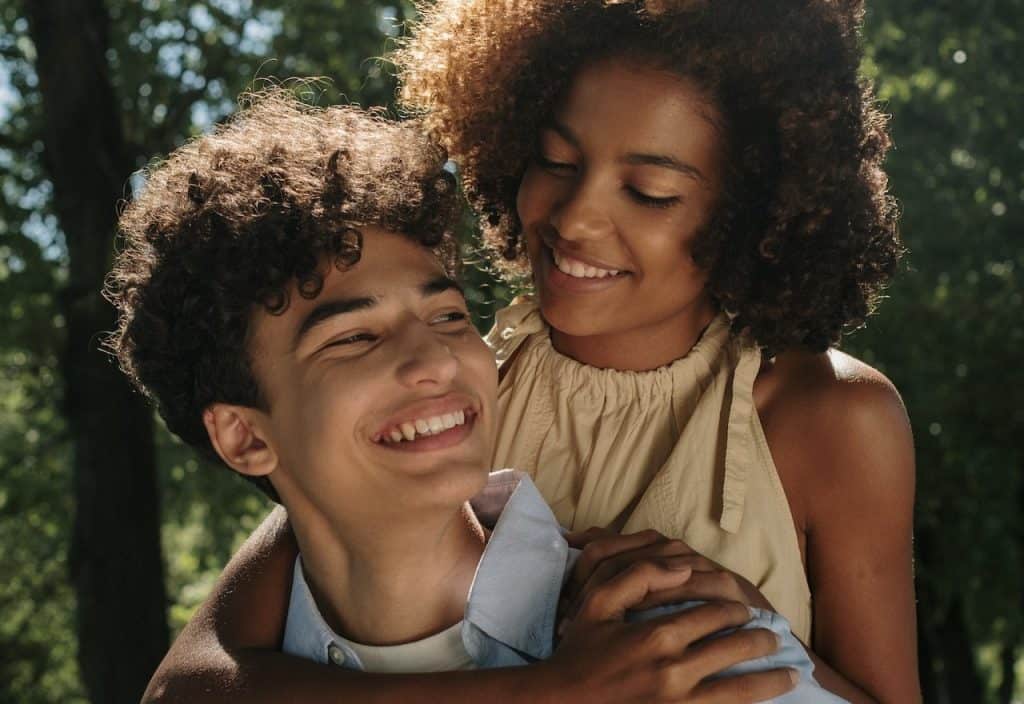Parents will always look at their children as young, no matter their age. However, as children enter their tween years they go through a myriad of changes before becoming a teenager.
A tween is a child between the ages of 8 and 12. This is a transitional period for children where they not only experience puberty, but they also begin to figure out who they are and what they’re passionate about by trying new things, developing new interests, changing their clothing styles, and spending time with new friends.
They also have many new emotions and feelings, begin to face peer pressure, and may experience body image and eating issues.
As your child goes through this new phase, they may begin to notice and like some of their peers at school. Soon, you may be asking yourself, “can an 11-year-old date?” You may wonder if it is ok, or if dating at that age may be too young.
At 11 years old, children may think they know all there is to know about dating and navigating relationships. However, at that age, they don’t have the emotional maturity to make decisions about romantic relationships. They don’t understand the difference between liking someone and dating someone.
Their emotional intelligence, reasoning, and judgment need to catch up with their changing bodies. Therefore, it is not recommended that an 11-year-old begin dating yet.
Can An 11-year-old Date?
It is important and healthy for boys and girls to socialize. As they spend time with their peers, they may begin to show interest and like some more than others and they may ask you about dating. They may also face peer pressure and may want to date only to prove themselves to their classmates.
So, is it ok for an 11-year-old to date? Or is it too young?
According to the American Academy of Pediatrics (AAP), most girls begin dating at 12 ½ and boys at 13 ½ years of age. However, the AAP recommends that children not engage in one-on-one dating until they are 16.
Nowadays, most tweens participate in group dating. Kids go to the movie theater, mall, park, beach, coffee shops, or similar public places to “hang out.”
There may be one or two romantic couples within the group, with most of them usually being unattached.
Group dating is a safe compromise as it allows tweens to interact with friends of both sexes without the awkwardness or pressure of one-on-one dating.
Additionally, much of tween dating happens through texting and social media.
Before allowing your child to group date, however, it is important to set clear guidelines and expectations.
Set Dating Ground Rules
Be Clear on Expectations
Talk to your child about what you consider appropriate behavior when out with their group of friends, where they are allowed to go, and when to be home.
If they’ll be hanging out at one location, establish whether it is ok for them to go somewhere else, or if they are expected to stay put. Ask them to check in with you if needed.
Decide whether you’ll require a parent to be present during their group dates and consider meeting the other children’s parents, especially if they’ll be getting together at one of their houses instead of a public place.
Have Open Conversations
It is important to keep the lines of communication open with your child. Express to them what healthy friendships and relationships look like.
Talk to them about setting boundaries and expectations for themselves and the people they are dating.
Connect with your child through ongoing, age-appropriate conversations about sex and sexuality and ask open-ended questions to learn more about their daily lives, their difficulties, and their feelings and emotions.
Having honest, open communication with your child will help you navigate this new phase as you decide whether your 11-year-old can date.
Set Social Media Boundaries and Expectations
Because a lot of tween dating happens through texting and social media, it is important to express to your child what constitutes safe, appropriate online behavior.
Explain to them how posting personal information on social media may be unsafe and how it may leave them open to cyberbullying.
Set phone rules and express to your child how you expect them to conduct themselves online.
Establish Contingency Plans
There may be times when the dating group may engage in dangerous behavior or activities.
Setting a contingency plan with your tween will allow them to feel safe to reach out to you when the group date is not going as planned or if your child does not like or feel comfortable with what the group is doing.
This can be anything from giving them a phone so they can call or text you with any issue to requesting to be picked up or going up to an adult for help.
Coping with Heartache
Most tween relationships are short-lived and superficial since they usually pick their significant others based on their looks, clothes, and/or social status. However, that doesn’t make them any less serious or significant.
According to a 2016 study published in the journal Behavioral Science, “over 50% of young people have dated by age 15” with most of the teens who have experienced a breakup by that time more likely to deal with depression and suicidal thoughts.
Therefore, as your tween experiences the pain and sadness of a broken heart, there are a few things you can do to help your child cope with their heartache.
Avoid Labeling
If you decide that your 11-year-old can date, even in a group setting, do not belittle their relationship by calling it an infatuation, puppy love, or a simple crush to help them get through their breakup.
To them, love is love, no matter how short-lived it was or how young they may be. Brushing off their relationship as not a big deal and something they should get over quickly will only make them resent you and make them unwilling to share their feelings with you.
Furthermore, do not speak negatively about their significant other after their breakup. Not only do tweens often get back together after a breakup, but doing so can grow their resentment toward the other person, preventing them from moving on.
Discuss Feelings
Be supportive and kind to your child as they cope with their breakup. Listen to them more than you speak and validate their feelings.
Use this as a teaching moment about managing uncomfortable feelings healthily and responsibly.
Allowing them to feel sad or angry, will help them understand they have a right to their emotions. Explain to them it is ok to feel the way they feel, and when ready, to release those feelings.
Reflecting on the relationship is an important part of breaking up. However, dwelling on it for a long time is not.
Discuss with them how damaging it can be to hold on to those feelings for too long. If your child cannot shake those feelings after a few weeks, you may want to seek the help of a professional.
Find Healthy Ways to Cope
Give them healthy ways to cope with the disappointment of their breakup. Journaling, talking to people they are close to and trust, and doing things they enjoy can help them deal with the rejection and pain they may be feeling.
Encourage your tween to refocus their energy and attention on productive activities and socialize with their friends. But don’t push them. They will do so when ready.
Remember that everyone heals differently and at their own pace.
Final Thoughts
Many changes occur as your child enters their tween years. Their bodies, emotions, and feelings begin to change.
As boys and girls socialize, they may become interested in dating and you may begin to wonder, “can an 11-year-old date?” and “is it ok, or too young?”
While one-on-one dating is not recommended for tweens, they can engage in group dating for a safer experience and less pressure.
Establishing guidelines for group dates and knowing how to help your child cope with heartache when it happens will help you all get through this new phase of your life.



